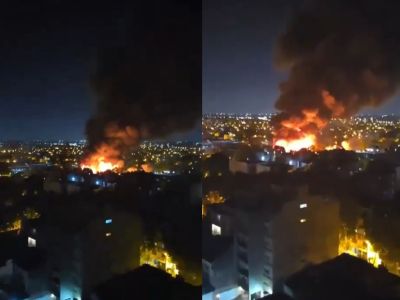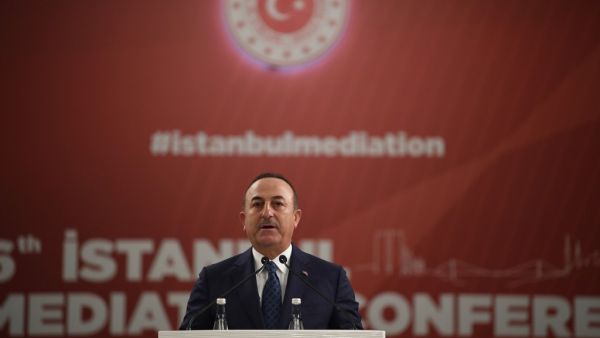Turkey has accused France and Israel of seeking to establish “a terrorist state” within Syria, after Paris and Tel Aviv both sided with Syrian Kurds in the face of Ankara's hostility towards them.
"They wanted to establish a terror state there," Turkey’s Foreign Minister Mevlut Cavusoglu said on Friday. "And this was spearheaded by France and Israel, I speak very clearly. This is the reason behind the breaking out."
Cavusoglu's comments come as France has already announced that it is imposing an immediate halt to arms exports to Turkey over Ankara’s continued war on Kurds in northern Syria, while Israel has said it is considering sending arms to Kurdish forces.
France's parliament on Wednesday approved unanimously a resolution condemning the Turkish operation.
The resolution, which also called for an immediate end to the operation in northern Syria reiterated France's "unwavering support" for the Kurds.
The Turkish Foreign Ministry on Thursday summoned the French ambassador and condemned the resolution in a statement.
“It is obvious that France took this decision after its plan to establish a terrorist state in Syria failed," the ministry added.
On October 9, Turkish military forces and militants of the so-called Free Syrian Army (FSA), who enjoy Ankara’s patronage, launched a cross-border offensive into northeastern Syria in a declared attempt to clear Kurdish militants from the so-called People’s Protection Units (YPG) from border areas and establish a “safe zone” there.
Ankara views the US-backed YPG as a terrorist organization tied to the homegrown Kurdistan Workers' Party (PKK), which has been seeking an autonomous Kurdish region in Turkey since 1984. The YPG constitutes the backbone of the SDF, an anti-Damascus alliance of predominantly Kurdish militants who maintains close ties with the United States as well.
The military operation came after the US abruptly pulled out its forces of the region, clearing the path for Turkey to go ahead with a planned military action against Washington’s longtime Kurdish allies.
Ankara says it aims to create the 32km (20-mile) deep "safe zone" along the Syrian side of the border where up to two million Syrian refugees can be resettled.
Cavusoglu claimed that some 365,000 Syrian refugees residing in Turkey have already returned to settlements within what Ankara insists is a safe zone.
Turkey agreed on October 17 to halt its Syria offensive for five days to allow the YPG militants to pull out of the border area following talks with the US.
As the deadline was about to end, Ankara struck a groundbreaking deal with Moscow, under which it agreed not to renew the operation in exchange for the Kurds to withdraw to a line 30 kilometers (18 miles) from the Turkish border.
Turkey currently controls a 120 kilometer-wide strip south of the Turkish border in Syria as a result of its military operation prior to the Sochi agreement between Russian President Vladimir Putin and his Turkish counterpart, Recep Tayyip Erdogan.
When the White House announced on October 6 that the US would be withdrawing its forces from northeastern Syria, the far-left and far-right parties in Israel rushed to express their overt support and sympathy for the abandoned Kurds.
Israel has long been backing the militants operating against the Syrian government. The regime has, on several occasions, criticized Turkey for its operations against the Kurdish militants.
The Turkish military has previously launched two cross-border incursions in northern Syria, namely the Euphrates Shield in August 2016 and the Olive Branch in January 2018, with the declared aim of eradicating Kurdish militants and Daesh Takfiri terrorists near Turkey’s borders.
This article has been adapted from its original source.










